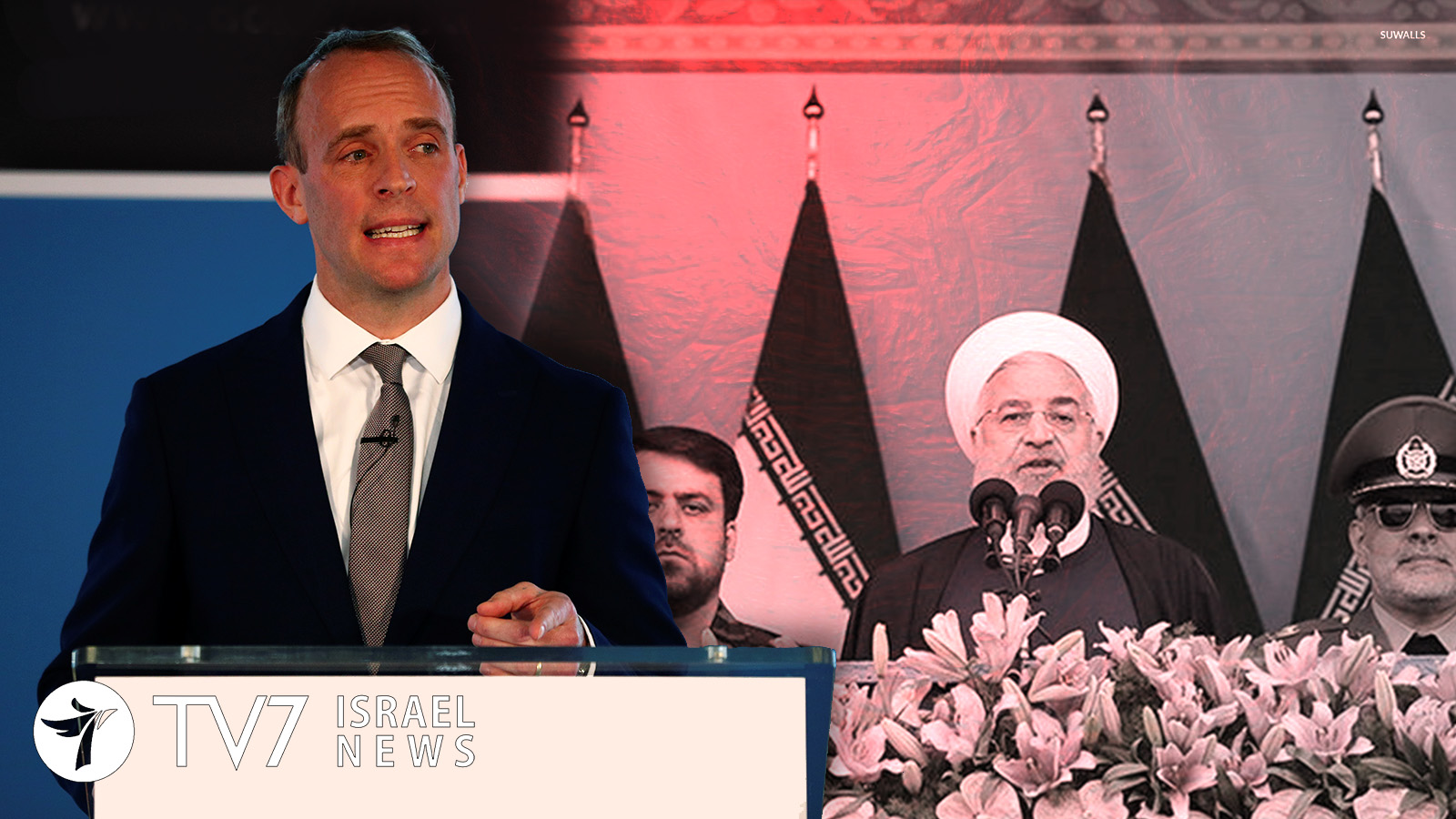Recently appointed British Foreign Secretary Dominic Raab levelled a warning against the leadership of the Islamic Republic of Iran, according to which it cannot expect to increase its acceptance amongst the international community unless it respects international law and the rules-based global’ system.
While insisting that Britain acted lawfully in detaining the Iranian oil-tanker Grace 1 because, according to intelligence information, it was heading towards Syria with oil, in breach of EU sanctions. Whereas the Iranian commandeering of a British-flagged oil-tanker was an act of state-initiated piracy.
In an interview to the London-based BBC Radio 4, Secretary Raab echoed his predecessor’s position, underscoring the vital importance to cooperation with the United States on assuring freedom of maritime navigation in the Persian Gulf in general, and the Strait of Hormuz in particular.
The British top diplomat insisted that the threat in the strategic strait is to all international shipping, and as such, it would be essential to have a broad coalition in support of maintaining the waterways open. Raab said: “The threat in the Straits of Hormuz is to all international shipping and I spoke to Mike Pompeo (U.S. Secretary of State) immediately on appointment and we’ve shared the view that we need to uphold the rules based international order and actually would be good idea to have a broad coalition supporting keeping the freedom of navigation in that region.”
Remarking on the same topic was Secretary Raab’s American counterpart, U.S. Secretary of State Mike Pompeo. During an interview in the U.S. capitol with the President of The Economic Club of Washington D.C., the American top diplomat acknowledged joint efforts with his British counterpart on establishing necessary deterrence in the volatile Persian Gulf.
When Asked whether the United States is committed to keeping the Strait of Hormuz open at any cost, Secretary Pompeo revealed that a global maritime security plan is in the making, saying: “Yeah, we’re going to keep them open. We are going to build a maritime security plan, countries from all across that world that have an invested interest in keeping those waterways open will participate. It will take more time than we wish it would take, but I’m very confident that the world understands its importance, that America is prepared to be a significant part of that, but we need countries from all across the world to assist us in protecting commercial transit. We will be successful.”
When asked on whether he expects Iran to return to the negotiating table with the United States due to the growing strain on Tehran’s economy, Secretary Pompeo reiterated once against Washington’s core Middle East Objective. According to Pompeo: “Remember the objective, the objective is the National Security strategy that was laid out now two and a half years ago with respect to the Middle East, so it is broader. We intend to focus on the tactical, we have to step back and think about what we are doing more broadly in the Middle East. With respect to Iran, it’s the world’s largest state sponsor of terror, it has the capacity to continue to work towards developing a nuclear weapon system which would cause proliferation risks all throughout the Middle East, and so we are very concerned about that as well. Our chosen strategy was to take a hundred and eighty degree turn from what the previous (Obama) administration has done, they created an opportunity for enormous wealth for the kleptocrats in Iran and for them to underwrite Hezbollah (Lebanon and Syria), militias in Iraq, the Houthis in Yemen that are even as we speak preparing to continue their attacks on Saudi Arabia. We have decided to go the other way, we are trying to reduce their resources to conduct terror campaigns all around the world, build up their missile systems and their nuclear program and we have been incredibly effective in that.”
Taking a sharp turn to the decades old Israeli-Palestinian conflict, the U.S. Secretary of State emphasized that while the international community could assist in bringing about peace, “At the end, (bringing about any viable solution) will be the decision of the Prime Minster of Israel and the leadership in the West Bank and Gaza.” In his words: “At the end, this will be the decision of the Prime Minster of Israel and the leadership in the West Bank and Gaza. I’ve been deeply involved in Mr. Kushner’s efforts there, he’ll be travelling, and my team will be travelling with him in the coming days, to flush out for our partners in the region our path forward. In the end, we can present our vision, our plan, what we hope they will engage on, we hope we get the Gulf states to join us in that effort and frankly the European countries too – to say this is the path forward. But in the end the decision about whether to make this fundamental rapprochement is up to those two countries, those two leaders.”
